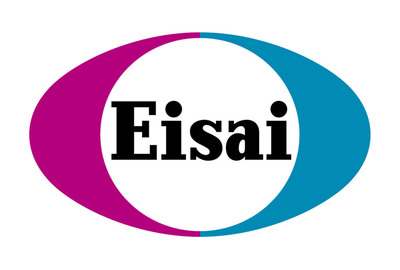Eisai announced today that the first investigational drug candidate from their drug discovery collaboration with University College London (UCL) is to enter Phase I clinical trials for Alzheimer’s disease (AD) in early 2019.
|
WOODCLIFF LAKE, N.J., /PRNewswire/ -- Eisai announced today that the first investigational drug candidate from their drug discovery collaboration with University College London (UCL) is to enter Phase I clinical trials for Alzheimer's disease (AD) in early 2019. The candidate, known as E2814, is an anti-tau monoclonal antibody set to be tested in human trials for the first time to assess its ability to slow the progression of AD.
AD is a chronic, progressive, neurodegenerative disease characterized by formation of protein deposits known as plaques (made of amyloid-beta protein) and neurofibrillary tangles (made of tau protein) in patient's brains. Tau "seeds" are believed to spread between different areas of the brain as the disease advances. E2814 is designed to target the tau "seeds", preventing further build-up of neurofibrillary tangles and thus may slow the course of the disease. The research collaboration, agreed in 2012 for an initial period of six years, has been extended for a further 5 years to 2023. It was established as part of Eisai's Open Innovation strategy to collaborate with leading researchers in order to translate new research findings into innovative treatments for patients with neurodegenerative diseases. E2814 is one outcome out of a portfolio of projects established during the first phase of the collaboration with UCL. "Significant unmet medical needs exist for neurodegenerative disorders such as Alzheimer's disease due to a lack of effective treatments that can prevent disease progression, and Eisai's mission is to contribute to overcoming these issues," said Teiji Kimura, Chief Discovery Officer of the Eisai Neurology Business Group. "By combining the knowledge of UCL, which conducts world-class research into neurodegenerative disorders and is the operational hub of the UK Dementia Research Institute, together with the knowledge of Eisai, who possesses a rich pipeline for dementia treatments, we are doing our utmost to link the results of joint research starting with E2814 to new medicines in order to contribute to patients who are awaiting curative therapies as soon as possible." Professor Alan Thompson, Dean of UCL Faculty of Brain Sciences, said, "This unique research partnership brings together UCL's world-class academic research capabilities with the drug discovery expertise of industry. These results highlight the success of bringing together such complementary expertise." There are an estimated approximately 50 million dementia patients worldwide. As the aging of the global population gathers pace, the number of dementia patients is expected to continue trending upward and increase to approximately 82 million patients in 2030 and approximately 152 million in 2050. It is believed AD accounts for up to 70% of all dementia cases. There is currently no cure for Alzheimer's disease. What is E2814? What is Alzheimer's disease? Eisai's Open Innovation About Eisai Co., Ltd. About University College London (UCL) About the UK Dementia Research Institute (DRI)
SOURCE Eisai Inc. |





